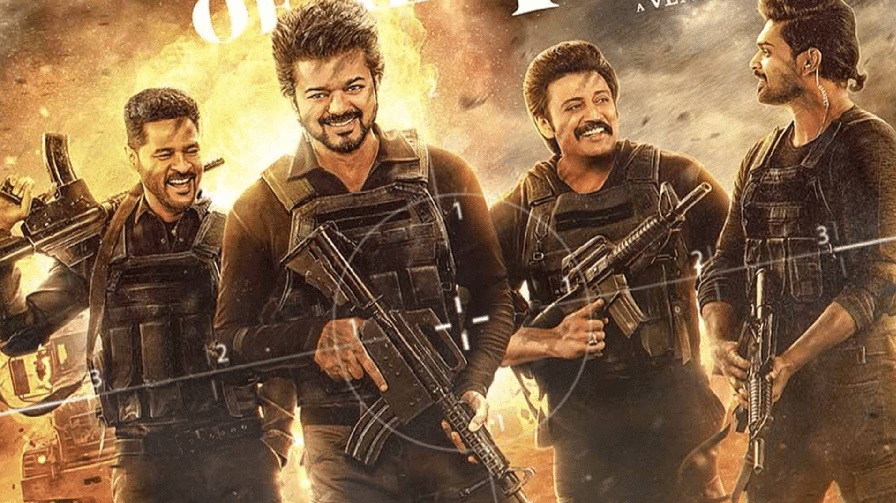This review is based on the original Tamil version of the film.

Living up to a title like The Greatest of All Time is no small feat, but Vijay takes on the challenge head-on. True to form, he delivers a performance that his fans have come to expect, anchoring a film that is, at its core, a formulaic blockbuster. Despite the uneven pacing, Vijay’s presence ensures that the movie remains engaging, if not entirely successful.
In a dual role as both father and son, Vijay shoulders the weight of The Greatest of All Time, a film that, at its best, is only patchy. The plot, filled with twists and turns, leans heavily on the actor’s charm and his ability to navigate its hurdles with flair, though the outcome isn’t always consistent.
Director and co-writer Venkat Prabhu builds the story around the theme of semi-retirement, a motif that Vijay has explored in recent films like Beast and Leo. The protagonist steps out of the shadows to reclaim his place in the action. Along the way, the film nods to Vijay’s past movies, with subtle references to Tamil cinema history and hints at his potential future in politics.
The Greatest of All Time aims to extend Vijay’s streak of box-office hits—he’s now Indian cinema’s most bankable star, with nine blockbusters in a row. The movie delivers what his fans crave but falls short in terms of originality, relying heavily on familiar themes like friendship, loyalty, betrayal, and redemption. The film’s climax, a showdown between two versions of Vijay’s character, feels like a metaphor for generational shifts, exploring the conflict between duty and vengeance, good and bad.
Vijay plays M.S. Gandhi, a character who is more about righteousness than peace. Leading a team of secret agents in Chennai’s Special Anti-Terror Squad (SATS), he’s positioned as the M.S. Dhoni of espionage—a great finisher despite any rough starts, much like the film itself. The narrative kicks off with a bang, but the first half falters as it tries to balance the hero’s combative nature with his familial obligations.
Gandhi is caught between two bosses—his SATS chief, Nazeer (Jayaram), and his wife, Anusuya (Sneha). Predictably, it’s his wife that causes him more trouble. As the plot unfolds, a figure from Gandhi’s past surfaces, leading to several revelations and a trail of deaths. While the finale lacks originality, it is redeemed by its high-energy execution, thanks to cinematographer Siddhartha Nuni and editor Venkat Raajen.
With a bomb threat looming, Gandhi swings into action to prove his GOAT status, as thousands of lives hang in the balance. The plot takes the team to Kenya, where they intercept a train carrying weapons-grade uranium meant for terrorists. Their mission spirals out of control, leading to unintended consequences that haunt Gandhi and his team, including his wife and young son.
The second half of the film focuses on a rogue agent, a disgruntled former ally who unleashes chaos. The movie, though overly long, maintains interest with well-timed action sequences and plot twists. However, the songs, composed by Yuvan Shankar Raja, disrupt the narrative flow, slowing the film down unnecessarily.
The director seems aware of this issue. In one scene, following the murder of a government official, the killer’s romantic interest (Meenakshi Chaudhary) asks if she’s been called for a song—highlighting the tension between the need for music and the film’s core as a thriller.
Action drives this film, not humor or romance, and while the attempts at comedy occasionally fall flat, Vijay remains the film’s saving grace. He deftly portrays two distinct characters—one hardened and world-weary, the other youthful and impulsive. It’s a performance that smooths over many of the film’s rough edges.
Vijay’s ability to rescue a movie has become so routine that it no longer surprises critics. His fans, however, will likely leave the theater feeling satisfied. In The Greatest of All Time, they get exactly what they came for: Vijay, in all his glory.












